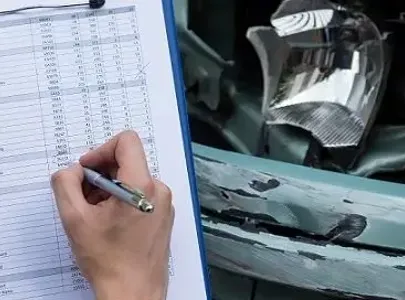Thinking about providing fuel cards to your employees to pay for petrol and diesel? One thing to be aware of is the potential tax implications. These are fairly simple in nature, don’t always apply and – best of all – can be avoided.

How do fuel cards work?
Fuel cards such as fuelGenie work by allowing employees to present a card as a method of payment, at approved petrol filling stations. This simple solution is available to companies of all sizes, who can provide a card to each individual employee who needs to drive in the course of their employment.
The payment works by charging the card in the first instance. After an agreed credit period, the company repays the amount. By giving employees a fuel card, businesses remove the administrative headache of processing and refunding expense claims. Employees will also generally prefer not to pay for fuel out of their own ‘pocket’, even if they can later claim it back.
Companies should note that there can be some tax implications to this approach, depending how you go about the process. Crucially, these can be easily avoided by following two simple rules.
Please note that the following information is for general information purposes only and does not constitute legal, financial or tax advice.
When does giving fuel cards to employees have tax implications?
If employees use a fuel card to cover all or part of any private travel, including journeys to and from work, then they are in effect using company funds to pay for their personal expenses. This makes it a taxable benefit.
The business then becomes liable for National Insurance contributions (at 13.8%) and must pay these on the value of the fuel benefit being received by the employee. As part and parcel of this obligation, the business must submit reports informing HMRC of any fuel for personal use, as well as any company vehicles which are also used for private journeys.
How can businesses avoid the tax implications?
There are two very simple ways to avoid creating any tax liability when employees use fuel cards:
- Employees must not use company fuel cards to pay for any private fuel usage
Or:
- Employees must refund the cost of fuel for any private travel to the company
The basic principle is to avoid a situation in which company funds have paid for any non-business travel, in which case it becomes a taxable benefit.
How do fuel cards for employees affect VAT?
Fuel carries a value-added tax (VAT) rate which purchasers are liable to pay regardless of how they pay for it. In the case of a company with multiple employees spending on fuelGenie cards, all the different transactions are combined into consolidated HMRC-approved invoices.
Can fuel cards affect VAT reclaim?
VAT can only be reclaimed by businesses, on business-related expenses. Therefore, if a company funds any private and personal travel, the VAT paid on that fuel is lost to the business. It follows that, in order to avoid this, you should follow the simple rules already mentioned:
- Employees must not use company fuel cards to pay for any private fuel usage
Or:
- Employees must refund the cost of fuel for any private travel to the company
One easy way to ensure employees follow these rules…
The use of company funds to pay for private fuel creates a tax liability not just for the employer, but also for the employee.
This means it’s also in the interest of workers to ensure they either avoid paying for personal fuel using the fuel card, or refund the cost of any private fuel to the company.
Otherwise, they will become liable to report their travel and pay the fuel benefit charge, which is a variable tax depending on a number of factors, including fuel type and level of CO2 emissions.